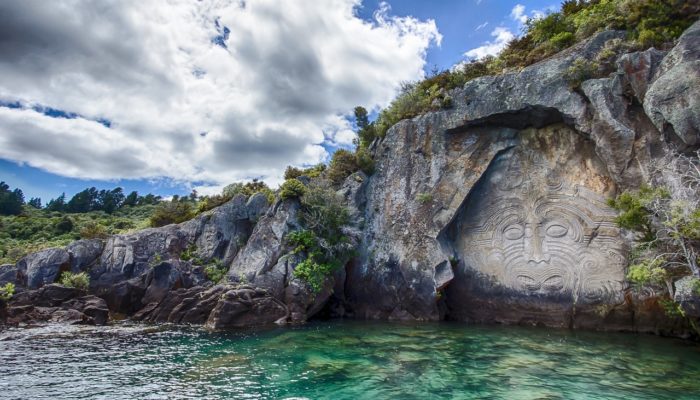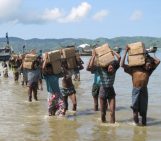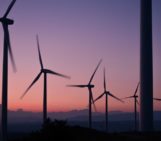
Jesse Zondervan picks his favourite posts from geoscience and development news which cover the geology for global development interest. Here’s a round-up of Jesse’s favourite selections for the last four months of 2020:
In the words of Sarah Derouin at AGU’s Eos “some geoscientists have seen their productivity grind down to plate tectonics speeds while the pandemic rages on”, but some environmental data scientists applied their geospatial skills to create a dashboard tool to predict COVID-19 infection risks in Nebraska.
Geohealth is emerging as a powerful interdisciplinary research endeavour, and expertise has led to new approaches to risk messaging that is being remobilized to understand how to handle COVID-19 and other future health hazards.
Another example of a geohealth study that came out in May in Geohealth highlights the importance of Saharan dust as a transmission vector for harmful pathogens. The paper uses transport models to track dust to particular sources and the ultimate goal of such studies is to provide populations with an advance warning system.
The value of indigenous knowledge
Prickly pear cacti as a water buffer against the vagaries of climate; monitoring salt content of water resources to predict sea-level rise; bans on cutting down trees or catching specific fish species: these are all practices helping adapt to climate change that stem from indigenous knowledge.
Indigenous peoples contribute significantly to biodiversity conservation and sustainable natural resources management, and a post on the World Bank blogs sets out steps to integrate this knowledge into the disaster risk management community.
Of note is a recent publication in the journal Earth Surface Dynamics offering a roadmap for weaving together indigenous knowledge with modern research. The authors offer an example of merging knowledge streams on braided rivers in New Zealand.
This post is chock-full of resources on geoscience and global development topics. More topics include the UN warning that raw materials used in electric car batteries are highly concentrated in a small number of countries; three ways blockchain could get the world to act against the climate crisis; and a new vision of sustainability in earth science education.
As always, there is more to explore. Don’t forget the opportunities listed at the end!
Geohealth
Dangerous Bacteria Catch a Ride on Saharan Dust by Gabriel Filippelli at AGU’s Eos
Geohealth: Science’s First Responders by Gabriel Filippelli at AGU’s Eos
Geoscientists Help Map the Pandemic by Sarah Derouin at AGU’s Eos
Indigenous knowledge
Weaving Indigenous knowledge with scientific research: a balanced approach at the European Geosciences Union
Traditional knowledge helps Indigenous people adapt to climate crisis, research shows by Wengky Ariando at The Conversation
How to integrate Indigenous Peoples’ culture and traditions into disaster risk management at the World Bank Blogs
Indigenous knowledge could reveal ways to weather climate change on islands by A’ndrea Elyse Messer at Penn State
Earth Science & Finance
Three ways blockchain could get the world to act against the climate crisis by Bernhard Reinsberg at The Conversation
Climate impacts outside Europe post greatest risk to German economy by Will Bugler at Acclimatise
How Financial Markets Can Grow More Climate Savvy by Jenessa Duncombe at AGU’s Eos
Key Investments Can Build Resilience to Pandemics and Climate Change by Leonardo Martinez-Diaz at the World Resources Institute
A century of misunderstanding of a key tool in the economics of natural resources at CNRS
Holistic way to measure the economic fallout from earthquakes by Tom Abate at the Stanford School of Engineering
Sustainability
UN highlights urgent need to tackle impact of likely electric car battery production boom at UN news
Nitrogen pollution policies around the world lag behind scientific knowledge by James Devitt at New York University
Seismic waves help scientists ‘see’ chemical changes beneath a watershed by Francisco Tutella at Penn State
Scientists urge caution, further assessment of ecological impacts above deep sea mining by Marcie Grabowski at the University of Hawaii at Manoa
Gold mining restricts Amazon rainforest recovery at the University of Leeds
Education and communication
Education May Increase Emissions but Mitigate Human Cost of Climate Change by Jan Kelvey at AGU’s Eos
Bringing Earthquake Education to Schools in Nepal by Rachel Fritts at AGU’s Eos
Why aren’t people in Accra better prepared for floods? The key is in communication at The Conversation
A New Vision of Sustainability in Earth Science Education at AGU’s Eos
Latest guidance shows how climate information services can reach more people at the Climate & Development Knowledge Network
Water management
NASA, University of Nebraska Release New Global Groundwater Maps and U.S. Drought Forecasts
Asia’s Mega Rivers: Common Source, Diverse Fates at AGU’s Eos
1.5 Billion People Will Depend on Water from Mountains at the University of Zurich
Shaping Water Management with Planetary Boundaries by Aaron Sidder at AGU’s Eos
New Report and Webtool Provide Insight into Iraq’s Looming Water Crisis: IOM and Deltares
Geoengineering
Geoengineering is just a partial solution to fight climate change at Rutgers University
Climate Change Adaptation
How to Tackle Climate Change, Food Security and Land Degradation at Rutgers University
Protecting bays from ocean acidification by Adam Thomas at the University of Delaware
A Tribe’s Uphill Battle Against Climate Change by Valerie Volcovi at AGU’s Eos
Scientists propose a method to make energy systems more resilient by Julie Chao at the Lawrence Berkeley National Laboratory
The co-evolution of technological promises, modelling, policies and climate change targets at Lancaster University
Human activity on rivers outpaces, compounds effects of climate change by Lois Yoksoulian at the University of Illinoi
Future Proof: Envisioning Asian Cities In A Climate Change-Impacted World by Christopher DeWolf at Tatler Hong Kong
African countries get new tool to predict climate-related disasters by Nellie Peyton at the Thomson Reuters Foundation
Disaster Risk Reduction
When Disaster Strikes Locally, Urban Networks Spread the Damage Globally by Kevin Dennehy at the Yale School of the Environment
New models detail how major rivers will respond to changing environmental conditions by Harrison Tasoff at UC Santa Barbara
Seismic map of North America reveals geologic clues, earthquake hazards by Danielle Torrent at Stanford’s School of Earth, Energy & Environmental Sciences
Detecting Earth’s Natural Hazards High Up in the Sky by Elvira Astafyeva at AGU’s Eos
Earth Observations Informing Cities’ Operations and Planning at AGU’s Eos
Volcanoes and floods: How satellites monitor disasters by Martin de Ambrosio at SciDev.Net
WASH knowledge management strategy in disaster risk management by Krishna Prasad Paudel at onlinekhabar
More
Geoscience Societies Commit to Tackling Global Challenges by James Dacey at AGU’s Eos
Conferencing online – We could get used to this by Mairi Dupar at the Climate & Development Knowledge Network
External Opportunities
Paper invitation – Exploring the Impacts of Mining on Planetary Health – until 31 December 2021
New postdoc positions at the Lund University Centre for Sustainability Studies
Allianz Climate Risk Research Award calling final-stage PhDs and postdocs
Follow Jesse Zondervan @JesseZondervan. Follow us @Geo_Dev & Facebook.



